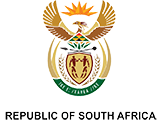Menu
- Survivor-centred care in the Eastern Cape
- Confidence to seek justice in the Free State
- Rebuilding lives in Mpumalanga
- From victims to survivors in Atlantis
- Turning porridge into profit
- A passion for pies
- Hatching success with the family
- Transforming tyres into treasure
- Cultivating a path to success
- A career path through volunteering
- A harvest of opportunity
- Bridging the gap between education and employment

For young people like Nontokozo Sibanyoni, who hail from some of South Africa’s most remote and impoverished areas, the Teaching Assistants Initiative championed by President Cyril Ramaphosa is not ‘just another government programme’ – it’s a sought-after opportunity for growth and a better future.
The initiative is the largest programme supported by the Presidential Employment Stimulus. It offers job opportunities for both matriculants and those who did not complete Grade 12. Over a million youth aged between 18 and 35 have been recruited as school or education assistants in over 23,000 schools countrywide.
“Being a school assistant brought a wave of positive change into my life and provided a platform for personal and professional growth, equipping me with invaluable skills that have since become the foundation of my career,’ notes Sibanyoni, a 28-year-old from Mpumalanga.
As school assistants, young people who have not completed matric do tasks such as general maintenance, security, food gardens, sports supervision and after-school care. In surveys, school assistants have reported learning new work-related skills such as time management, professional communication, teamwork and accountability.
For graduates or young people armed with a matric, the programme offers the chance to become education assistants. Their skills are employed in the classroom as support teachers, administrators and IT assistants.
Comrades Marathon bronze medalist Ernest Khalata was recruited at the Lereko Secondary School in Bloemfontein. A part-time athlete and graduate in human resource management, Khalata was able to uncover hidden potential. “Having proven to have the ability, understanding and passion to work with the learners, I discovered yet another talent that was hidden in me: I could actually teach,” he says proudly.
Not only has the programme provided meaningful work experience and skills, but the wages earned by participants have gone into local economies within townships and rural communities, providing a much-needed boost. Over R6 billion in wages has been paid to young people across the country.
Some have put their newly acquired skills and hard-earned money to good use by starting side businesses in their communities. ‘With the money I earned, I built a room where I braid clients’ hair. I am also learning on SAYouth.mobi how to run a side-hustle so I can achieve my dream of owning a hair salon,’ reveals Xolile Nxele, 34-year-old school assistant from eSikhawini in KwaZulu-Natal.
The programme also supports participants’ long-term career development. Aspiring education assistants are encouraged to apply for Funda Lushaka bursaries offered by the Department of Basic Education in order to become professional educators.
By bridging the gap between education and employment, the Teaching Assistants Initiative is helping to nurture a generation of empowered young South Africans.
Your story matters!
Help us understand the impact of government initiatives by sharing your experience.
Submit your story
